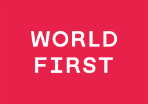Daniel is Founder and CEO and has 20 years of experience in the international finance world focusing on cross-border payments, technology and the property sectors. Daniel is widely quoted as an expert within the money transfer industry including by The Economist, The Wall Street Journal, Reuters, CNBC and Bloomberg. Daniel is passionate about helping consumers and businesses find the best and most efficient ways to transfer money internationally.
Frequently asked questions
How we calculate the savings
Contents
Summary
Ireland money transfer regulations
Ireland's monetary policy
Currency union
Economic background
Tax and property issues
Currency
Ireland to Individual Country Guides
Summary
As member country of the European single currency, the euro (EUR), Ireland has no foreign exchange controls restricting money transfer to Ireland of transferring money out of Ireland.
Ireland money transfer regulations
Any sum of money in any currency can be freely brought into or taken out of the country without disclosure or other formalities.The single European currency, the euro, is the second most traded currency globally after the US dollar.
Ireland's monetary policy
Monetary policy for the single currency bloc is determined by the european Central bank. Irelands central bank, the Central Bank of Ireland, provides oversight of the financial sector and licence all financial service providers. There are five money brokers and fourteen registered currency exchange firms licenced in the country.
Currency union
Irelands accession to the euro has made sending money to and from the country very straightforward. The introduction of the single currency in 1999 has made the money transfer between the 18 member countries cheap and fast as the zone has created a single payments system. This single payment system extends to Iceland, Liechtenstein, and Norway, despite their retaining independent currencies.
The euro suffered considerably in the wake of the 2008 global financial crisis and the resulting economic downturn in the Eurozone, which affected smaller countries like Ireland, Greece, Italy and Spain more heavily than the anchor economies, France and Germany. The economic context has improved considerably, even if growth in the eurozone remains weak. The euro remains one of the worlds most successful currency unions, serving as the peg for two common currencies in Francophone Africa, the Central African CFA franc (XAF) and West African CFA franc (XOF). Within Ireland, euros are most frequently exchanged with the US dollar (75%), followed by the British pound and Japanese yen, according to the most recent report from the Bank for International Settlements from April 2013.
Economic background
Property market prices rose faster in Ireland than in any other developed economy in the decade leading up to the financial crisis; average prices for residential property have fallen by an estimated 47% from their peak in 2007. As activity faltered in key sectors such as construction and agriculture, the Irish economy came to rely on its openness to foreign direct investment (FDI) and the foreign exchange market; the industrial and services sectors rose to the forefront, supported by a investment from foreign multinationals. Ireland completed its EUR67.5bn EU-IMF bailout programme in 2013 and now stands on a stronger financial footing.
Tax and property issues
Compared to the rest of the Eurozone, Ireland has particularly favourable conditions for foreign investment and property ownership, including a low corporate tax rate of 12.5%, preferential rates for small businesses, and research and development tax credits. Non-residents are required to pay income and corporate tax only on revenue generated within Ireland or from an Irish employer, and additional exemptions apply in the case of double taxation agreements. As of mid-2013, Ireland had signed 69 tax treaties, of which 64 are in effect.
Currency
The euro comprises 100 cents. Euro banknotes are printed in denominations of EUR5, EUR10, EUR20, EUR50, EUR100, EUR200 and EUR500. Coins are minted in values of 1, 2, 5, 10, 20 and 50 cents, and EUR1 and EUR2. Each member countrys central bank issues its own currency; notes are standardised, but coins have national designs on one side and common designs on the other. All euro currency from any country is accepted within every currency zone member state.
Ireland to Individual Country Guides
Transfer Money Ireland to USA



















